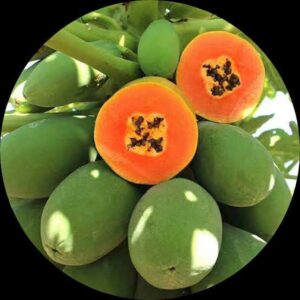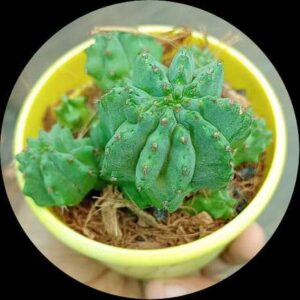- Empty cart.
- Continue Shopping
Kili Njaval
Original price was: ₹460.00.₹250.00Current price is: ₹250.00.
Genus : Syzygium
“Experience the tropical flavors of Kili Njaval with our Kili Njaval Plant. This fruit tree bears small, tangy berries with a vibrant color and a distinctive taste. The Kili Njaval fruit is known for its refreshing flavor and versatility, perfect for jams, jellies, and desserts. Cultivate your own Kili Njaval tree and enjoy the bounty of this exotic fruit in your own garden or orchard.”
Kili Njaval, also known as Kodaikanal hill loquat, is a fruit tree native to the Kodaikanal hill station in Tamil Nadu, India. It belongs to the family Rosaceae and is closely related to other fruit trees such as apples, pears, and peaches.
The fruit of the Kili Njaval tree is a small, round or oval-shaped fruit that is about the size of a cherry or a grape. The fruit has a yellow or orange skin that is covered with tiny hairs, and the flesh is soft, juicy, and sweet, with a flavor that is similar to a mix of peach and pear. The fruit has several small seeds in the center.
The Kili Njaval tree is a small to medium-sized tree that can grow up to 6 meters tall. It has glossy, dark green leaves and produces small, white or pink flowers that eventually develop into the fruit. The tree is well adapted to the cooler temperatures and higher altitudes of the Kodaikanal hill station, and is relatively tolerant of cold temperatures.
The fruit of the Kili Njaval tree is rich in antioxidants, dietary fiber, and vitamin C, making it a healthy addition to any diet. It is often eaten fresh, but can also be used in jams, jellies, and other culinary applications.
In addition to its culinary uses, the Kili Njaval tree is also valued for its ornamental qualities. The tree has attractive foliage and produces small, fragrant flowers, making it a popular choice for landscaping and as a specimen tree.
Overall, Kili Njaval is a delicious and nutritious fruit that is enjoyed by many people in the Kodaikanal region and beyond. Its adaptability to cooler temperatures and ornamental qualities make it a valuable addition to any garden or landscape.













Reviews
There are no reviews yet.